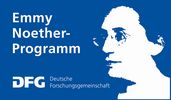Contact information
Daniel Samaga, M.A. M.A.
Curriculum vitae

Daniel Samaga, born in 1984, is a research assistant at the Carl von Ossietzky University of Oldenburg. Since August 2016, he has been responsible for the project "Staging Mozart" in the Emmy Noether research group "Music History on stage: Constructions of the Musical Past in Music Theater".
Samaga studied Musicology and History at the University of Münster from 2007 to 2010, graduating with a bachelor’s degree. Afterwards he studied Music Research and Music Education (majoring in Historical Musicology) at the Hanover University of Music, Drama and Media, completing his master’s degree in 2012 with a thesis on the barcarole in the music and literature of the 19th century. The topic arose from his work as a student research assistant at Deutsches Studienzentrum in Venice. From 2012 to 2017, he studied Modern Europe – History and Literature in a distance learning master’s program at the FernUniversität in Hagen, earning a second master’s degree in 2017 with a thesis on Protestant war magazines during World War I. From 2013 to 2016 he worked in the management of the Aachen Symphony Orchestra at the Theater Aachen.
Since August 2016, he has been working on his PhD-project, which examines Mozart’s representation on stage and authentication strategies in historiographical music theater. His research interests focus on Mozart reception in different media, canonization research, historiographical music theater and public history.
PhD-Project
Representing Mozart on Stage: Authentication Strategies in Historiographical Music Theater on the Life of W. A. Mozart
Peter Shaffer’s play Amadeus (1981) and its film adaptation by Miloš Forman once again turned Mozart’s portrayal on stage and in film into a controversial issue. Especially the relationship between facts and fiction divided audiences, critics and musicologists. A few decades before, Karl Hartl’s film biographies (Wen die Götter lieben, 1942 / Reich mir die Hand mein Leben, 1955) as well as Sacha Guitry’s French Comédie musicale Mozart (1925), had already prompted the author Heinz Thies to write the play Mozart – Sein Leben wie es wirklich war (1957), trying to give an accurate representation of Mozart’s life. Thies uses biographical essays and quotations from letters by the Mozart family, which frame the text of the play, in order to testify for the audience that the events on stage correspond to historical facts. What other possibilities do authors and composers have to give their work the appearance of historical authenticity?
Based on recent research in public history understanding authenticity as a quality attributed by the recipients, i examine in my PhD-project examines the strategies that music theater on the life of Wolfgang Amadeus Mozart uses to establish an ‘authenticity fiction’. By combining approaches from public history, narratology and the research on anecdotes and canonization, i will study how the authors position themselves in relation to historical facts, how they authenticate their representation as historically accurate and how these representations are received by the audience. In this context, i pay particular attention to the role of music, particularly to the embedding of Mozart’s compositions into the plays.



